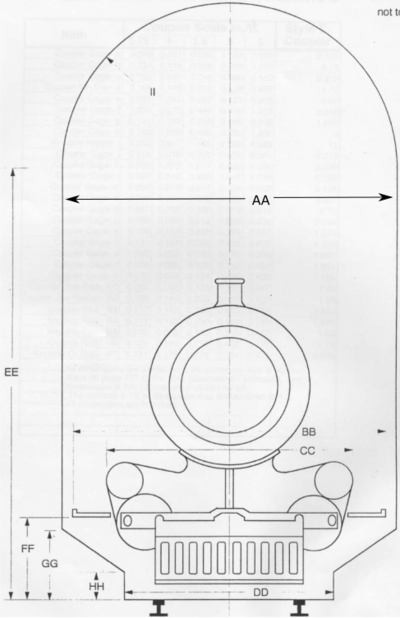Loading gauge: Difference between revisions
Jump to navigation
Jump to search

No edit summary |
No edit summary |
||
| Line 3: | Line 3: | ||
A [[Loading gauge|loading gauge]] defines the maximum height and width for railway vehicles and their loads to ensure safe passage through bridges, tunnels and other structures. In the case of live steam operation, the [[Loading gauge]] must include clearances for passengers. | A [[Loading gauge|loading gauge]] defines the maximum height and width for railway vehicles and their loads to ensure safe passage through bridges, tunnels and other structures. In the case of live steam operation, the [[Loading gauge]] must include clearances for passengers. | ||
== MiniRail Standard == | |||
The following [[Loading gauge]] was published by [[Mini-Rail Corporation]] in the late 1980's. The [[IBLS]] does not presently provide a [[Loading gauge]] standard. | |||
[[File:MiniRailCorporation LoadingGauge.PNG|thumb|center|400px|Mini-Rail Corporation [[Loading gauge]] ]] | |||
== External Links == | == External Links == | ||
Revision as of 10:57, 4 May 2017
A loading gauge defines the maximum height and width for railway vehicles and their loads to ensure safe passage through bridges, tunnels and other structures. In the case of live steam operation, the Loading gauge must include clearances for passengers.
MiniRail Standard
The following Loading gauge was published by Mini-Rail Corporation in the late 1980's. The IBLS does not presently provide a Loading gauge standard.

Mini-Rail Corporation Loading gauge